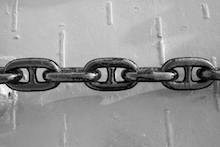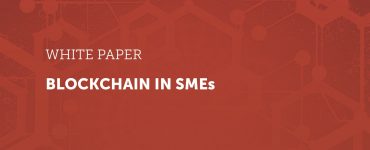- Blockchain can automate essential processes of public administrations in a manner which is tamper-proof
- eco Association calls for an innovation-friendly climate for testing blockchain solutions amongst authorities and administrations
It enables publicly transparent, tamper-proof, and failsafe transactions: Blockchain technology has the potential to automate many processes in administration and for authorities. These strengths of the blockchain – keeping counterfeit-resistant registers and acting as a trustworthy neutral authority – also epitomize the central characteristics of public institutions. “Blockchain provides government agencies with new tools to facilitate complex and trustworthy interactions between government and citizens. The technology offers an immense potential to change systems and accelerate processes,” says Stephan Zimprich, Leader of the Competence Group Blockchain at eco – Association of the Internet Industry.
Procedural flows can be programmed into the blockchain as smart contracts
Public administrations maintain lists – for example, of the residents of a municipality, or the vehicles registered there. The land register lists the rights of citizens to certain properties. “Today, we could already manage all of this in a forgery-proof, automatic, and efficient manner with the help of blockchain technology,” declares Zimprich. A further strength of blockchain is that it can automate the implementation of processes and the enforcement of legal standards. “Legally binding procedures could be programmed into the blockchain as smart contracts, which would then effectively ensure observance with these procedures as soon as all prerequisites are met,” says Stephan Zimprich.
But before administrative processes can be transferred to blockchain, the public sector must tackle a number of challenges: “Administrations could benefit enormously from blockchain, but realizing this potential would require new legal foundations and a high degree of willingness to change on the part of responsible parties,” continues Zimprich. Technological and human resources challenges also need to be resolved, and people’s acceptance of blockchain must be strengthened. “Blockchain is a fundamental technology, but one whose real exploitation requires people to develop confidence in it.”
Blockchain has the potential to permanently change administration
In order to achieve these goals, administration should promote technology and cooperate with science and industry. But while German institutions are tending to “wait and see,” other countries are already moving on. Sweden is investigating whether and how to record land transfers on blockchain. Countries such as Honduras and Ghana are also experimenting with blockchain to make land management safer from corruption or errors in the transfer of land use rights.
In African countries, tamper-proof elections could be ensured with blockchains. Counterfeit voting would be virtually impossible, as all votes would be stored in a network of computers accessible to everyone. From the records, citizens’ initiatives and the media could independently establish how many votes were received for whom, and whether the election results are accurate.
Further information on the work of the Competence Group Blockchain at eco Association is available at https://www.eco.de/en/topics/blockchain/kontakt/.
Next date: On 12 December 2017, the city of Cologne, together with the deutsche medienakademie, InsurLab Germany, the German ICT & Media Institute, and eco – Association of the Internet Industry, invite you to the Blockchain PreMasters 2017 in the Alte Pfandhaus Cologne.

-
Lars Steffen +49 (221) 7000 48 - 176 lars.steffen@eco.de



